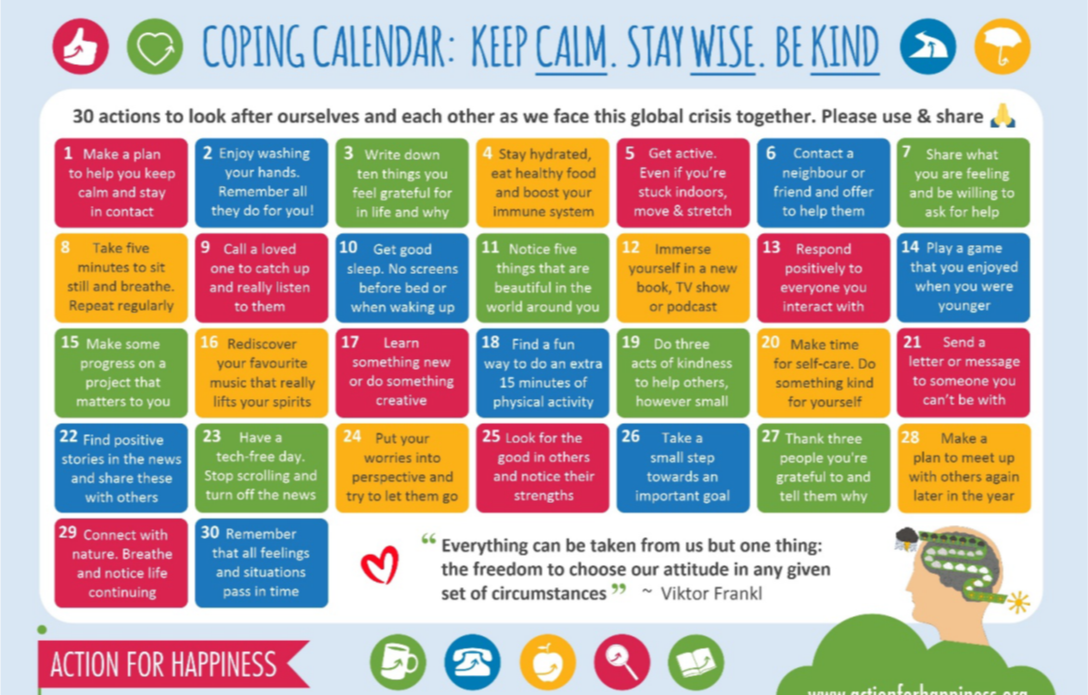Talking to children about coronavirus
Children will have heard about coronavirus and it is important that they hear the key messages from someone they trust such as yourself. Below are some tips to help you to talk to them.
• Listen to your child’s concerns and ensure you acknowledge their worries.
• Focus on answering your child’s questions with factual information where you can.
• It is ok to say that you don’t know the answer to questions but that you can try and find out for them.
• Remember children learn from your response so try and stay calm when you are answering their questions.
• Try and give practical guidance when you can, e.g. how to wash hands.
(Adapted from British Psychological Society)
Take care of yourself
During this time you may have your own worries and feel stress. This is normal and it is important that you acknowledge your own feelings. Some other tips for self-care are:
• Get out in the fresh air and exercise when you can.
• Focus on practical things you can control, e.g. washing your hands
• Maintain connection with others through calls, texts, internet.
• Build in daily stress release activities.
If you are stressed and anxious – take time and be kind to yourself.
Ideas for structuring your child’s day
Although it may be tempting to forget about routines and structure during this time, it can help children and young people feel safe during periods of uncertainty when there is some structure and routine. Ideas for supporting this include:
• Set times for going to bed and getting up in the morning where possible.
• Build in time for fresh air and exercise.
• Create a variety of activities such as games, art activities, music, play, garden activities and reading.
• Make a daily plan with your child and share them with your child the night before so they know what to expect. Place this somewhere your child can see it.
• Limit their time on electronic devices where possible.
• Respect each other’s privacy and give space where you can.
• Take time to review the day’s activities to help them get a sense of accomplishment.

Ideas for structuring your child’s day
Although it may be tempting to forget about routines and structure during this time, it can help children and young people feel safe during periods of uncertainty when there is some structure and routine. Ideas for supporting this include:
• Set times for going to bed and getting up in the morning where possible.
• Build in time for fresh air and exercise.
• Create a variety of activities such as games, art activities, music, play, garden activities and reading.
• Make a daily plan with your child and share them with your child the night before so they know what to expect. Place this somewhere your child can see it.
• Limit their time on electronic devices where possible.
• Respect each other’s privacy and give space where you can.
• Take time to review the day’s activities to help them get a sense of accomplishment.

